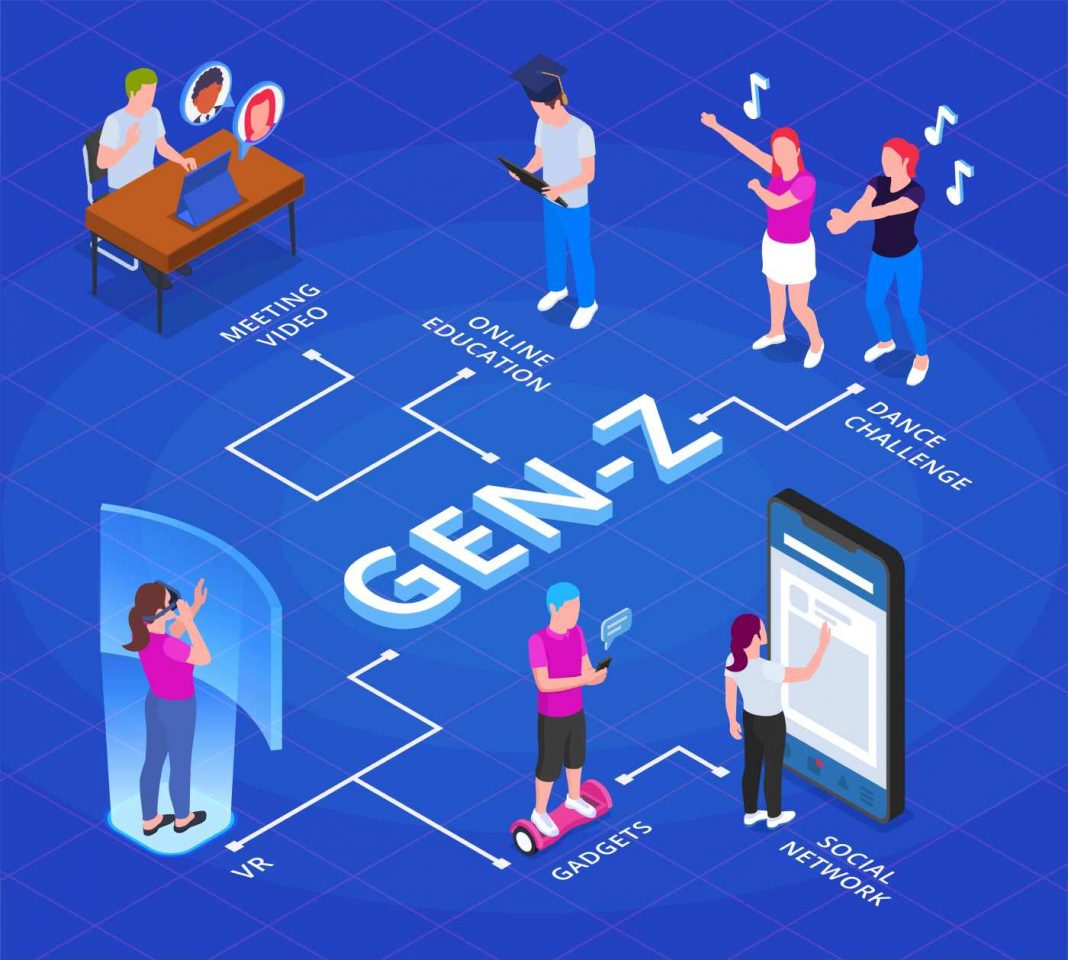The research conducted by IDN Research Institute and Popullix in 2022 shows that Indonesia is currently enjoying a demographic bonus. Simply put, a demographic bonus is an advantage that a country has when there is an increase in the number of productive population aged between 16 and 65 years.
However, the growth of the productive population must be accompanied by an increase in productivity so that the potential of the demographic bonus can be realized. Through this potential, the demographic bonus is expected to help the country achieve its golden period in 2045 (Adioetimo, Sri Moertiningsih 2018).
Generation Z (Gen Z) as the generation that follows Generation Y (millennials) is the generation born after 1995 (Brown, 2020; Francis & Hoefel, 2018; Linnes & Metcalf, 2017). As the youngest generation in the current workforce, Gen Z is expected to maximize the potential demographic bonus of Indonesia.
The unique potential of Gen Z includes being adept at following technological and information developments, various cultural trends from within and outside the country, the entertainment industry (music, film, and fashion), and even modifying language in daily conversation.
This is supported by several studies identifying Gen Z as a generation that is close to technology, born in the era of smartphones, grew up with advanced computer technology, and has easier access to the internet than previous generations (Sakitri, Galih 2021).
In statistics released by the Directorate General of Taxes (DGT) during a working meeting with Commission XI of the DPR on June 14, 2022, it was shown that DGT employees under the age of 25 totaled 7,767 out of a total of 45,315 employees, or 17.14% of the total employees. With the number and potential available, the Gen Z DGT certainly provides great potential for future leaders, change agents, and creators of new ideas and innovations for the DGT.
As a DGT employee and Gen Z, the author still remembers the direction of the leadership about the importance of being a DGT employee who not only works with intelligence or mind but also opens the heart, has an instinct as a tax person. In carrying out their duties as a DGT employee, the author feels that the work is not always administrative. There is also a demand to always contribute more than what should be done. It is not enough to just be a tax collector, but one must learn to become a Tax Man. The instinct or intuition as a tax person must be brought out and nurtured
To nurture the fiscus instinct, it is certainly not as easy as flipping a hand. It requires a combination of awareness, knowledge, skills, attitudes, and behaviors (internal factors) that are built and consistently applied in daily life.
In addition to the internal factors of each Gen Z mentioned above, nurturing the fiscus instinct can also be influenced by external factors formed by the environment, in this case, the respective work unit. Seeing the opportunities and challenges, the unique potential of Gen Z can certainly be accommodated by the work unit, especially in the aspect of developing creativity and innovation in studying office problems.
“Peta Jalan” is an innovation initiated by the KPP Pratama Samarinda Ilir, based on the awareness of the importance of cultivating fiscal instincts through the work environment. The “Peta Jalan” team consists of all KPP Samarinda Ilir executors who are under 30 years old and focuses on developing their character to ensure that their fiscal instincts are implemented properly in every aspect of their work. The “Peta Jalan” team was established by the head of the office through a decree as a team responsible for finding general taxpayer information.
In its implementation, each team member is equipped with a task letter and a designated work area, then the activity begins by collecting information from internal sources in the DGT and open sources such as the internet. Next, the team directly goes to the field to ensure the validity of the existing information, and finally, the results of the “Peta Jalan” are presented in front of the office’s leadership and related parties, such as Account Representatives, Tax Inspectors, Appraisers, and Bailiffs.
In line with the saying “once you row, you can pass two or three islands,” in addition to cultivating fiscal instincts, the “Peta Jalan” innovation can indirectly be utilized in efforts to reduce the tax gap that occurs in the KPP.
The tax gap is an indicator often used to describe tax noncompliance by calculating the difference between the potential tax revenue and the actual tax revenue of the office. The role of the “Peta Jalan” team in ensuring the validity of information is expected to minimize information imbalances between taxpayers and the DGT, especially in terms of potential tax revenue, so that the tax gap can be reduced.
In modern science theory, there is a term called the butterfly effect, which was proposed by an American meteorologist named Edward N. Lorenz (1972). Lorenz explained the relationship between the flapping of a butterfly’s wings in Brazil that caused a tornado in Texas. This metaphor explains how small actions can initiate a series of events that cause larger and unexpected effects in the future. Similarly, “Peta Jalan” is a simple innovation that is expected to have a significant impact on the organization.
Through the example above, it is hoped that the DGT’s Generation Z will become more motivated and enthusiastic in continuing the struggle to collect state revenues.

